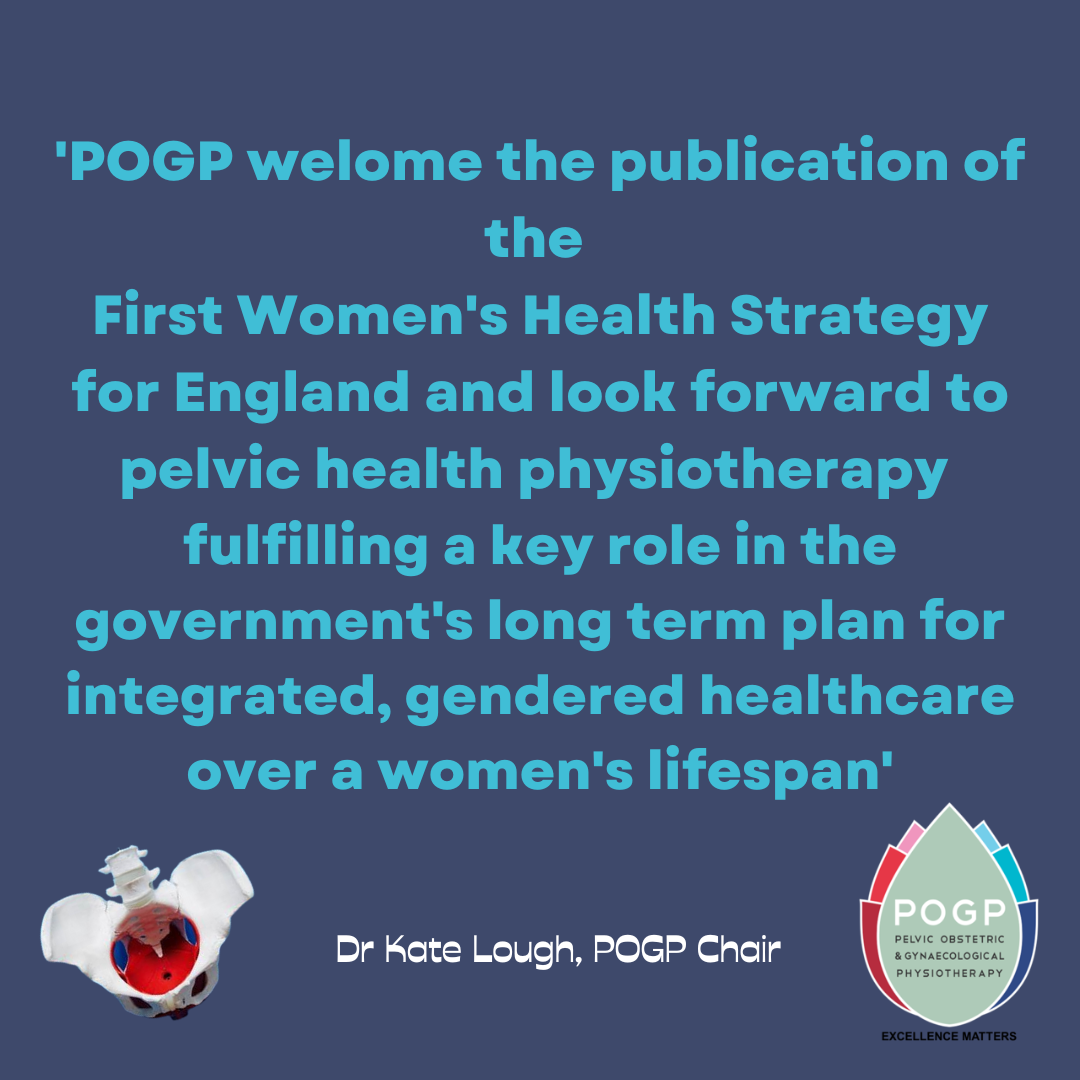The Women’s Health Strategy
20 July 2022
(Last updated: 20 Jul 2022 21:32)
The Women’s Health Strategy has now been released.
The CSP commented to say :
"We welcome this strategy which is an important step in the right direction if we are to tackle the stark gender health gap that has existed for so long.
It is imperative that women’s voices are heard and that their lived experiences are acknowledged and better understood in order to shape and improve services within the NHS.
But to deliver on these recommendations we need to ensure we specifically listen to and co-design services with the voices of marginalised women who disproportionately struggle to access rehabilitation services. But to deliver on these recommendations we need to ensure we specifically listen to and co-design services with the voices of women who are marginalised due to race, class and disability, for example and who disproportionately struggle to access rehabilitation services.
The physiotherapy workforce will be key to achieving all these goals as they play a vital role in supporting women in many areas, not least with pelvic prolapse and gynaecological related pain which was found to be one of the top areas where barriers existed in accessing these services.
Focusing efforts on research and data gaps will also ensure women, and women with different protected characteristics, are represented in clinical trials and studies.
Whilst this strategy will hopefully give women hope for a brighter future, for these recommendations to transform into life changing practical actions in local communities, we need the will, proper investment, freedom and support for healthcare professionals to implement changes
We welcome this strategy which is an important step in the right direction if we are to tackle the stark gender health gap that has existed for so long.
It is imperative that women’s voices are heard and that their lived experiences are acknowledged and better understood in order to shape and improve services within the NHS.
But to deliver on these recommendations we need to ensure we specifically listen to and co-design services with the voices of marginalised women who disproportionately struggle to access rehabilitation services. But to deliver on these recommendations we need to ensure we specifically listen to and co-design services with the voices of women who are marginalised due to race, class and disability, for example and who disproportionately struggle to access rehabilitation services.
The physiotherapy workforce will be key to achieving all these goals as they play a vital role in supporting women in many areas, not least with pelvic prolapse and gynaecological related pain which was found to be one of the top areas where barriers existed in accessing these services.
Focusing efforts on research and data gaps will also ensure women, and women with different protected characteristics, are represented in clinical trials and studies.
Whilst this strategy will hopefully give women hope for a brighter future, for these recommendations to transform into life changing practical actions in local communities, we need the will, proper investment, freedom and support for healthcare professionals to implement changes".
Dr Kate Lough, Chair Pelvic Obstetric and Gynaecological Physiotherapy (POGP) adds:
"POGP welcome the publication of the First Women’s Health Strategy for England and look forward to pelvic health physiotherapy fulfilling a key role in the government’s long term plan for integrated, gendered healthcare over a woman’s lifespan. Building on existing strategies and influenced by women’s voices these initiatives will encourage women to access healthcare in a timely way, and be better supported along the treatment pathway. Pelvic health physiotherapy has a role for all aspects of pelvic floor and pelvic pain conditions which significantly affect women’s well-being.
The role of the Women’s Health Ambassador will be key to linking the government areas that impact on women’s health giving health, social care, mental health, justice and equalities a common goal".
The strategy in HTML and PDF formats can be found here
It details the government’s 10-year ambitions and the actions they are taking to improve the health and wellbeing of women and girls in England.
The Priority Areas of the strategy include:
- Menstrual health and gynaecological conditions
- Fertility, pregnancy, pregnancy loss and postnatal support
- Menopause
- Mental health and wellbeing
- Cancers
- Health impacts of violence against women and girls
- Healthy ageing and long-term conditions
On its 6 Point Plan, the Government has said the following:
“We have a clear ambition that, within the next 10 years, our Women’s Health Strategy for England will have:
boosted health outcomes for all women and girls radically improved the way in which the health and care system engages and listens to all women and girls"
We will achieve this by:
- taking a life course approach
- focusing on women’s health policy and services throughout their lives
- embedding hybrid and wrap-around services as best practice
- boosting the representation of women’s voices and experiences in policy-making, and at all levels of the health and care system”

View other News